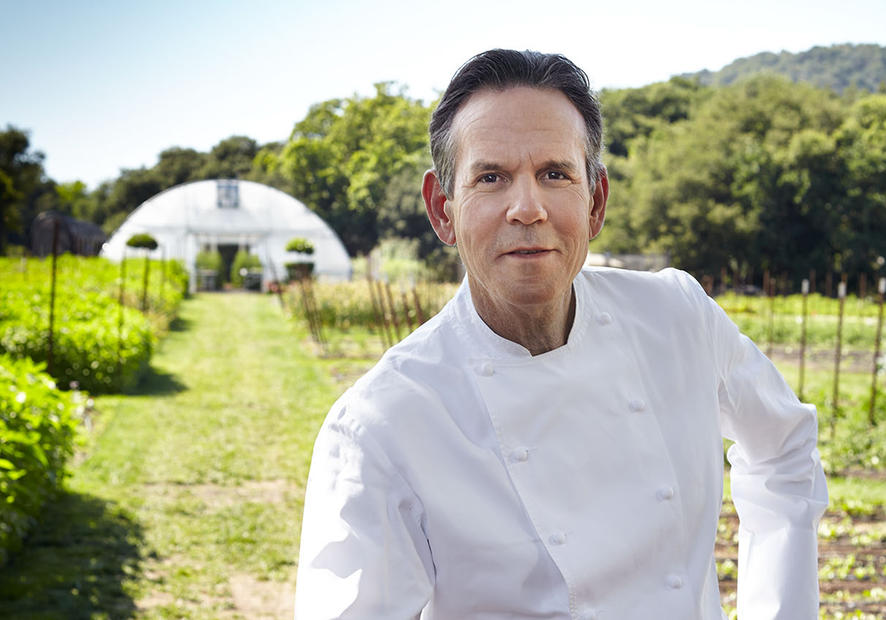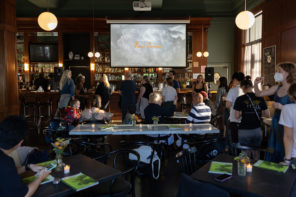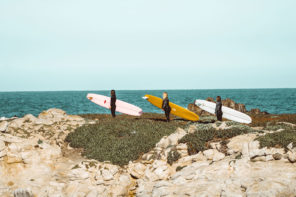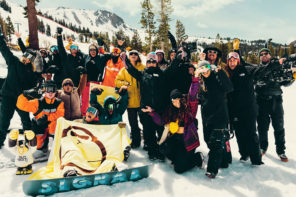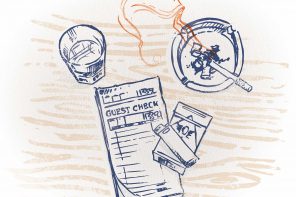For every action there is an equal and opposite reaction. Newton’s Third Law keeps the universe in balance. This is why in the heart of Yountville, a town fast becoming a Thomas Keller theme park, just a few blocks from the French Laundry, Pancha’s evens the scales.
For every 12-course tasting menu with a lackey dabbing at the corners of your mouth with a silk square misted with cucumber water and lemongrass oil between plates, there is a bar thick with cigarette smoke where the only concession to comfort are the rattan chairs slowly rotting in place. For every kitchen filled with true believers obsessing about how straight the masking tape they use to label that evening’s supplies is, there is a bartender who is lucky if everything he pours lands in the plastic cup teetering on the bar top. And for every overly obsequious maître D exemplifying the Keller way, there is Rose, who’s just as likely to curse out, flip off or ignore a customer as take their order (especially if they look as though they’ve just enjoyed a meal that costs more than most of her customers make in a month). Rose has been tending bar in this building for more than 30 years. Thomas has only been in town 24.
The fact that these places exist in such close proximity also means that they do not exist on separate planes, despite the social distance that separates them. In fact, they commingle often. And while the denizens of Pancha’s are unlikely to wander over to the French Laundry for a meal, it happens all the time that people who have just finished $600-a-plate-dinners saunter into the dive bemused—sometimes prepared for what’s to follow, but often not.
Maybe you’ve heard that the bar can allow smoking through some loophole of the California State code, because everyone who works there is part of the same family or something. If the loophole isn’t real, it’s real enough that the black, plastic ashtrays on the bar are overflowing with butts like it is 1978. It’s true enough. The bartender tells you every so often a new sheriff will come to town, literally a new sheriff, and think he’s going to change things at Pancha’s. Stop the smoking. Cite health code violations. Tame its wildness, somehow. And yet, this afternoon, cigarette smoke still curls and wafts through the bar, yellowing the currency from every port of call stapled to the ceiling. Evidently, these new sheriffs had not heard of Newton’s Third Law.
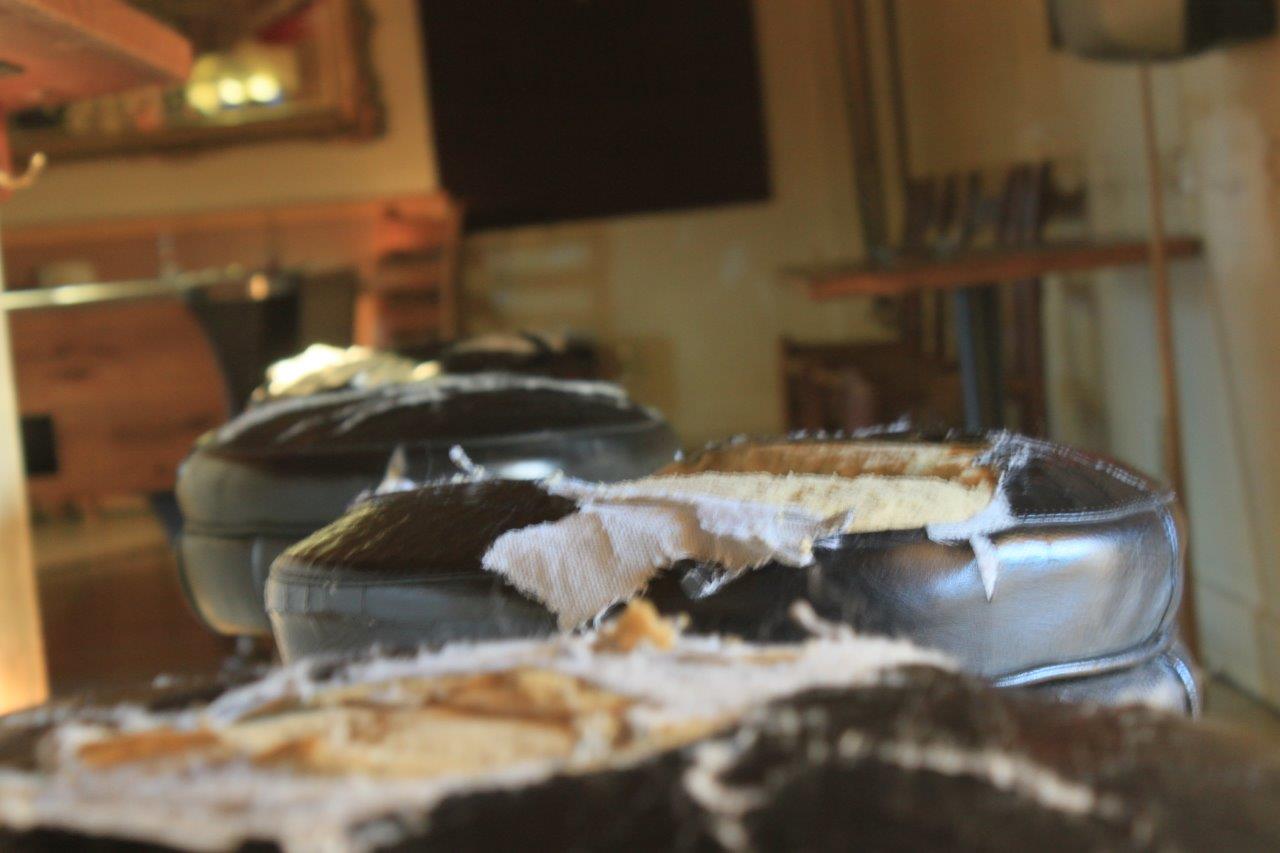
Just below the bills, next to the “Cash Only”-sign, looking over the ramshackle wooden building from on high with a watchful eye and a head wobbling slightly, is Bobby, or the bobblehead version of the bar’s owner and Rose’s nephew, Bobby, let’s call him Bobby. Just like the real Bobby, Bobbly has the long white braided ponytail and Fu Manchu over what may be a grin—might not be though. Bobby comes in and out of the building, carrying this and that, tending to the business of keeping the oldest business in Yountville going, but Bobbly is always here. The same sort of maybe grin.
Even between Rose and Bobby, there is balance. Bobby is quick to smile, usually warm and welcoming. Rose, well, she’s got to see you at the bar a few times before she’ll waste what might pass for a smile on you. Their family owns this building outright, the mortgage long paid off, and it’s one of the last holdouts of the way Yountville once was before there were replica trolleys carting tourists from wine tours to spa days.
For every kitchen filled with true believers obsessing about how straight the masking tape they use to label that evening’s supplies is, there is a bartender who is lucky if everything he pours lands in the plastic cup teetering on the bar top.
The taco truck in the parking lot, Tacos Garcia, is one of the best in this part of the valley. It’s where French Laundry line cooks get lunch next to argon gas delivery drivers. Pancha’s serves as Tacos Garcia’s dining room if you don’t feel like balancing your plate on the ledge of the truck and would rather a Coors Banquet than a Jarritos with your midday meal.
The lunch crowd is more Rose’s speed. Or, you’ve never seen her kick anyone out of the bar that early in the day at least. Pancha’s is surprisingly bright. The building is little more than a shack, and the Napa Valley light floods in the front and back doors, maybe through some cracks here and there.
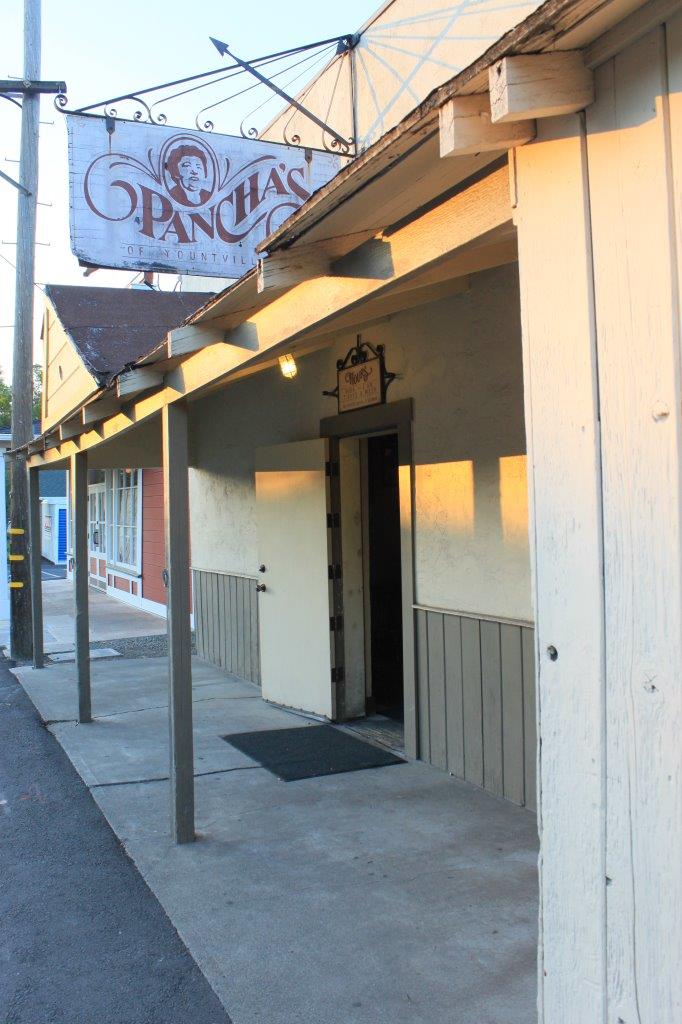
You sit at the bar as the light sinks, and day-trippers done wine tasting drift in and out of the bar, generally without incident. Cellar hands and vineyard workers on the way home stop in for an after-work beer, sick of looking at wine all day long.
At The Laundry, waiters stand at stiff attention as the first wave of dinner covers are seated in the small, studiedly charming but formal dining room. Couples linger across the street in the restaurant’s vaunted culinary garden, indulging the fantasy that everything they are about to put into their stomachs comes from this patch of rarefied earth. It’s true enough.
The driver pulls over and recognizes it’s Bill Freaking Murray when he opens the door. “Can you take me to Pancha’s?” Murray asks.
There’s a story about somebody picking up a hitchhiker on Route 29, the main thoroughfare up and down Napa Valley. They see a man walking along the shoulder, not a place where you expect to find pedestrians, but this hitchhiker famously doesn’t carry a phone, so maybe he was stranded. The driver pulls over and recognizes it’s Bill Freaking Murray when he opens the door. “Can you take me to Pancha’s?” Murray asks.
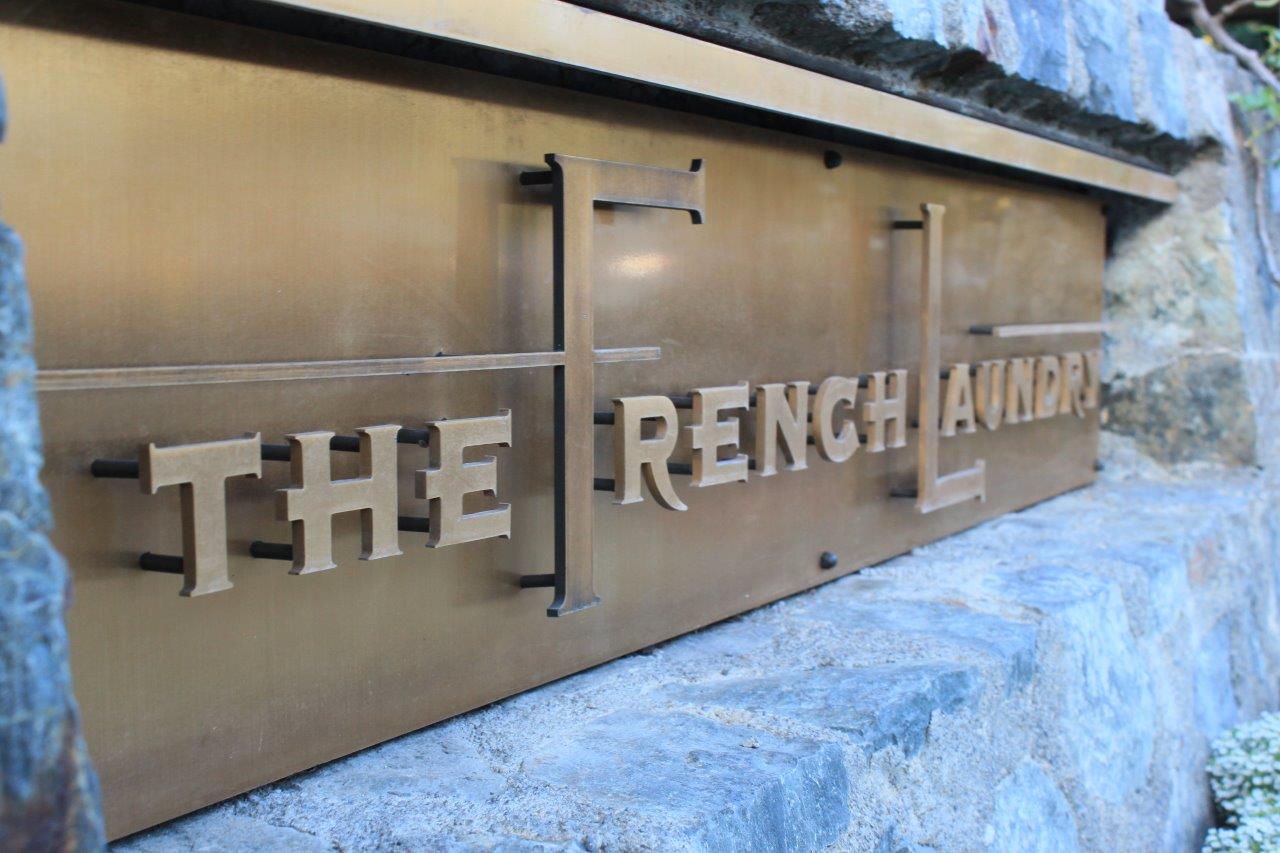
Bill Murray or no, late night the crowd diversifies even more. There’s some of the daytime crew left over, sipping whiskey to stall going home to their tract homes, still dropping quarters into the jukebox to play classic rock and country tunes, now broken up by Flo Rida and reggaeton from the kitchen crews and waitstaff getting off their shifts and playing a game of pool on the two seriously worn tables. A group in event attire—suits and gowns—have clearly come from a function nearby, some fundraiser at some winery. But everyone’s getting along. Everybody’s happy—even they ladies whose party dresses and hair are going to smell like cigarette smoke the next day. Then one of them cackles a startled, “Hey,” as she feels the fabric at the back of her gown bunching and pulled. And as she wheels around red-faced, a dapper and horn-rim-bespeckled gentleman, hair neatly parted, sheepishly apologizes. He was just looking at the fabric, he explains. It’s Andy Spade. All is forgiven.
Everyone goes back to sipping warm beer from their plastic cups.

